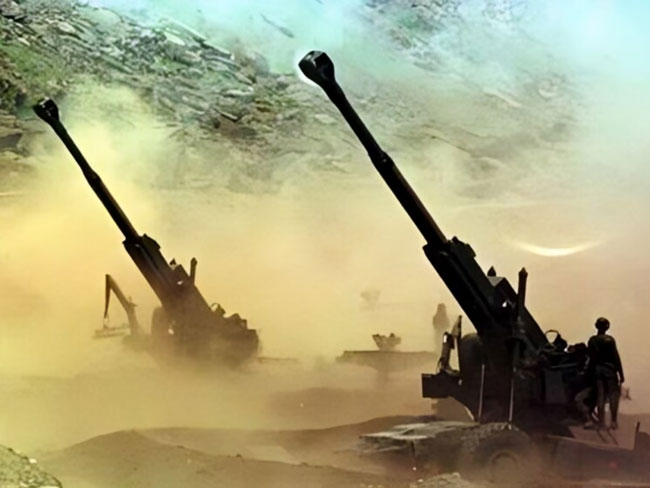The sting of Pakistan’s defeat in the 1999 Kargil War continues to burn even today. Yet, Pakistan refuses to learn from its past. On April 22, after a cowardly terrorist attack in Pahalgam, as India prepares to dismantle the very roots of terrorism, a rattled Pakistan has started issuing threats of war once again. But it must understand—any misadventure this time will result in consequences far graver than before.
A Stab in the Back, Disguised as Friendship
The Kargil War was the last major military confrontation between India and Pakistan, fought from May to July 1999. At that time, Indian Prime Minister Atal Bihari Vajpayee and his Pakistani counterpart Nawaz Sharif were actively pursuing peace. However, under the garb of diplomacy, Pakistan’s army conspired to occupy the strategic heights of Kargil.
Starting in February 1999, Pakistani troops and infiltrators took advantage of winter to sneak into and capture Indian posts that had been temporarily vacated due to snow. Their aim was to cut off the Srinagar-Leh highway, disrupt supply lines, and create unrest in the Kashmir Valley.
Operation Vijay: India’s Decisive Response
In early May, local shepherds in the Batalik region alerted Indian forces about unusual activities. The truth soon came to light—these were not just militants, but Pakistani regulars and paramilitary personnel.
India launched Operation Vijay on May 10, deploying over 40,000 troops to reclaim territory in the Dras, Batalik, and Kargil sectors. On May 26, the Indian Air Force joined the fight. Fighter jets like the MiG-21, MiG-27, and Mirage-2000 bombarded enemy positions at altitudes exceeding 16,000 feet.
On June 13, the Tololing peak was recaptured, and on July 4, the Indian flag once again flew high over Tiger Hill. A key contributor to this victory was the Bofors artillery, which effectively targeted enemy bunkers hidden in the snow-covered mountains.
Pakistan’s Defeat and the Fall of a Civilian Government
Faced with mounting international pressure, particularly from the U.S., and a crushing military defeat, Nawaz Sharif declared a unilateral ceasefire on July 11 and ordered a troop withdrawal. Yet, parts of the Pakistani military resisted till the end.
Finally, on July 26, 1999, Indian forces completely cleared the region of Pakistani intruders. This day is now celebrated as Kargil Vijay Diwas (Kargil Victory Day) in India.
A Heavy Price for Betrayal
India lost 527 brave soldiers in this conflict, while Pakistan suffered approximately 4,000 military casualties. The defeat shook Pakistan to its core. In October 1999, General Pervez Musharraf staged a military coup, ousting Nawaz Sharif and seizing power as a dictator.
Although Pakistan continues to deny the extent of its involvement in the war, leaders like Nawaz Sharif have later admitted the truth—that the Kargil misadventure not only humiliated Pakistan globally but also led to a devastating loss of life within its own ranks.




